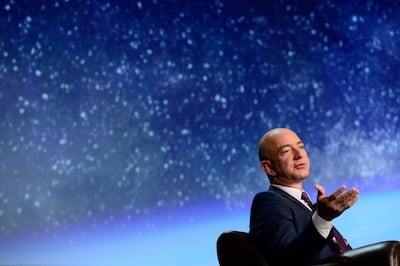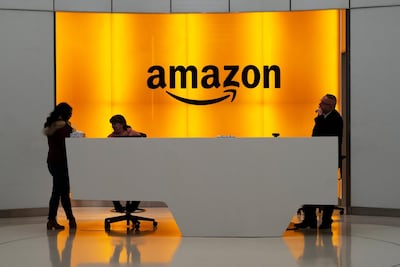The world’s non-billionaire class did not need Covid-19 to inspire envy of the ultra-rich. But the virus helped – Swiss bank UBS estimates that the world’s richest increased their collective wealth to over $10 trillion during the pandemic, its highest ever level. Nonetheless, there have been downsides for billionaires over the past year.
This will need some explaining, especially after the staggering figures involved. Leading 2020's rich list is Jeff Bezos, the founder and chief executive of Amazon, whose wealth has increased by 80 per cent, to a little over $200 billion. Elon Musk has grown his wealth considerably, too, by more than $68bn. Mark Zuckerberg of Facebook has become $54.7bn richer.
Understandably then, many predict a bright financial future for the world’s billionaires. Dominant sectors on the list like technology, which has played such an important role in the pandemic, will continue to expand at pace with numerous lockdowns set to stretch into 2021.
These facts jar against the wider world’s economic state. Data from the UN’s International Labour Organisation suggest that global total working hours fell by 14 per cent in the second quarter of 2020, the equivalent of the loss of 400 million full-time jobs.
The gaffes of some billionaires during this time of growing inequality have also exacerbated divisions. American magnate David Geffen, for instance, was widely criticised for a series of badly judged social media posts last March. As much of the world was heading into lockdown, Mr Geffen posted a picture of his $590m superyacht against an evening backdrop of the Grenadines, with the caption “Sunset last night ... Isolated in the Grenadines avoiding the virus. I’m hoping everybody is staying safe”. Ridicule was swift, with users sarcastically thanking him for his thoughts. He deleted his Instagram account soon after.
Such mishaps risk tarnishing the huge philanthropic efforts undertaken by some of the world’s wealthiest individuals. Bill Gates, co-founder of Microsoft and co-chair of the Bill & Melinda Gates Foundation, is estimated, as of June 2020, to have given over $50bn to charity. At one point in 2010, he pledged to give away 95 per cent of his fortune. Last year, the Chronicle of Philanthropy ranked Mr Bezos’s gift of $10bn to support non-profits combatting climate change, as the largest donation of 2020.
Reminding the world of such actions is one way the wealthiest aim to build, or rebuild, their reputations. But it will not be enough, because an extreme distrust of celebrity billionaires by a small but growing minority falsely alleges far more sinister motivations.
Take the case of Mr Gates’s global vaccine alliance, Gavi, which has vaccinated more than 822 million children in the world’s poorest countries. It has become the unjustified target of a vocal fringe of conspiracy theorists online.
Those who are not so conspiratorially minded are focusing their anger from the havoc of Covid-19 on billionaires, too. Humans are pattern-seeking animals, and in the chaos of the pandemic the patterns some spot are extreme. Instinctively, it is both conspicuous and galling the way that some stay wealthy while the finances of ordinary people spiral out of control.
We should label conspiracy theories for what they are: dangerous and vindictive falsehoods. But nations, particularly capitalist ones, must start to have frank discussions on the growing anger in some countries about the very existence of billionaires, as well as what responsibility they have to the rest of the population.
A lot is revealed about a society in how it approaches its wealthy citizens. As the American left grows more active, increasing numbers in the Democratic Party advocate socialist policies – something previously considered unthinkable in a country that bills itself the centre of western free-market capitalism. In the UK, Peter Mandelson, a former adviser in the 1997 “New Labour” government, famously said that the government's movement was “intensely relaxed about people becoming filthy rich”. This became the summary quote of the Labour Party’s move to centrist politics, and bitterly resented by the organisation’s socialist left.
As institutional trust wanes in the West, it is inevitable that some will label capitalism’s most successful men and women part of the problem. Perhaps, in some cases, this can be true, for those billionaires who take on the trappings of James Bond-style super villains, cocooned in floating palaces, seemingly preserving only their own safety.
But there is a place for the entrepreneur to transform the world for the better and to be a responsible actor while acquiring – and being incentivised by – immense personal wealth in the process. Governments must continue to debate various strategies to address unfairness, in a manner that does not limit prosperity. There are obvious places to start, such as more effectively combatting tax avoidance, a practice open only to those who have the resources to exploit complex legal loopholes.
Before the pandemic, debating the ethics of extreme wealth accumulation was primarily about economic fairness. The pandemic, and the anxiety and distrust it has caused, has given the debate consequences for public health, too. If billionaires want to continue doing good, they need to beware.
Thomas Helm is a staff opinion writer at The National




